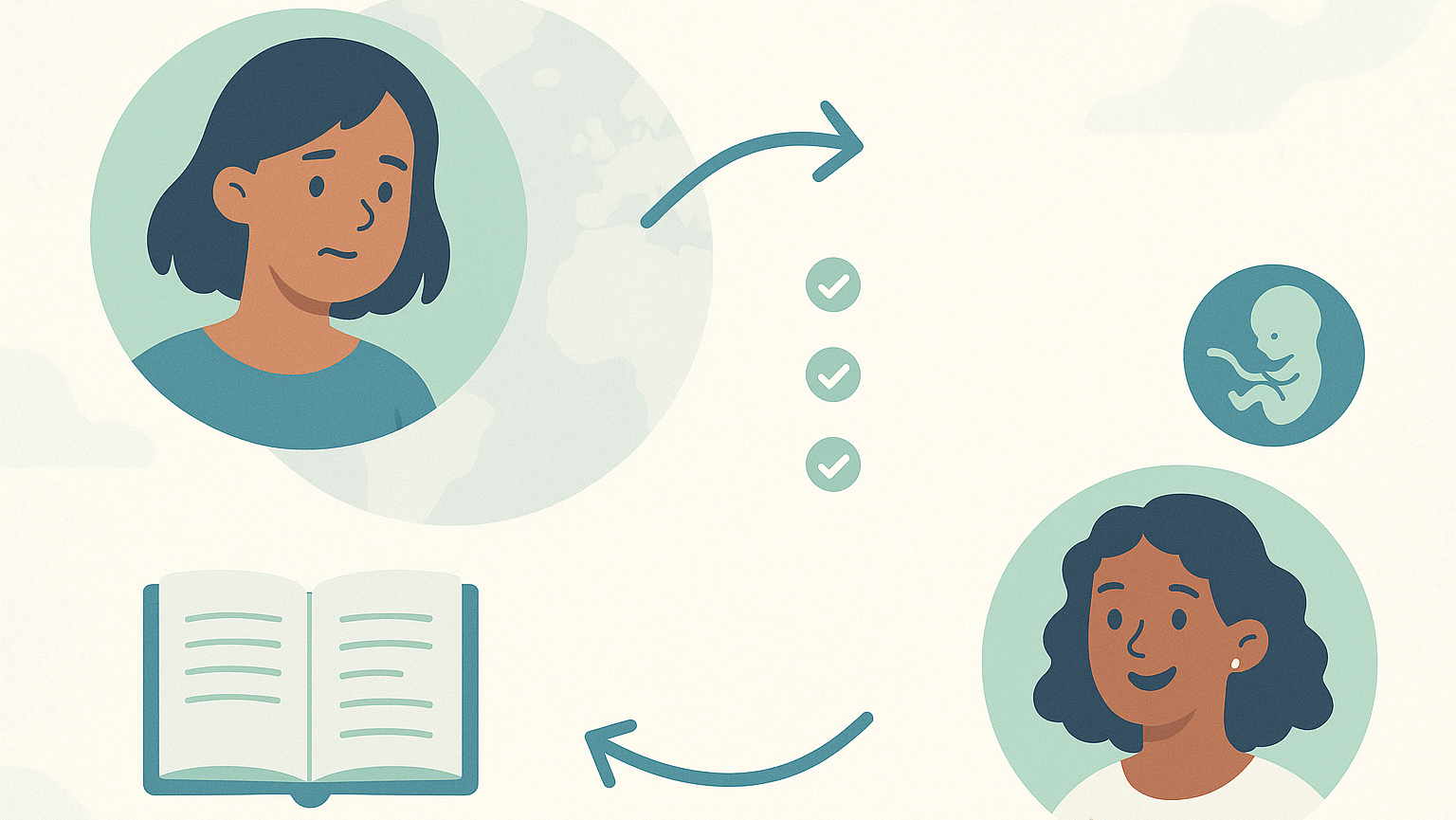The importance of abortion education among teenagers
Swornima Shrestha
Jan 15, 2025
Sexual health education and abortion; are two of the topics that often spark debate. Some say it’s not appropriate to talk about it in front of teenagers but some say it’s a crucial part for teenagers to know about sexual health. Yearly, almost 16 Million teenagers aged 15-19 years old give birth worldwide, so do we still think it’s not a subject to talk about in front of teenagers?
Teenagers are in the phase of their life where they are forming themselves, in these phases if they are not provided with decent and accurate information then they won’t be able to understand complex issues. Evidence suggests that abortion education can play a crucial role in decision-making, reducing stigma around abortion, and promoting public health. Addressing this topic to teenagers with sensitivity and factual accuracy is not only effective but also essential.

I remember my health teacher missing the whole unit based on reproductive health, quoting “ It’s not an important chapter”. The incident left many of us puzzled thinking why this was not an important topic. As we talk about abortion, many define abortion as the termination of a pregnancy before the fetus can survive outside the uterus. Abortion is illegal in many countries, we won’t be discussing that today. But, abortion education is critical. At the core, these programs aim to ensure safe access to abortion services while addressing the unique needs of teenagers, including education, counseling, and support.
In many developed countries, abortion education is provided for teenagers. Countries like Sweden, Netherlands, and Finland practice abortion education in the curriculum for teenagers. This has showcased a lot of positive changes over time. Adolescents who receive education about sexuality and have access to contraception and family planning services have lower rates of pregnancy and abortion. This concept is widely used in developed countries. But in developing countries like Nepal, it’s hard for parents to discuss it. Nepal is a country where teenagers still think babies come from the sky, strange why the concept of abortion education is not there.
For many teenagers, the biggest problem is not knowing where to turn. Safe and legal abortion programs give them a place to go where they won’t be judged or put in danger. In areas with these programs, there are fewer unsafe abortions, which are risky and can lead to serious health problems or even death. People should be aware that abortion
education programs don’t just offer abortions—they also help prevent unplanned pregnancies in the first place. They provide information about how to avoid pregnancy and access to birth control. When teenagers know how to protect themselves, they’re less likely to need an abortion later. One big challenge is the stigma around abortion. Many teenagers are afraid of being judged by their families or communities, which can stop them from seeking help. Programs that create a safe, non-judgmental space are more likely to reach those who need them.
For abortion education to truly help teenagers, they need to focus on safety, education, and emotional support. They should also work to break down the stigma so that teenagers feel comfortable asking for help. These programs are about more than just healthcare—they’re about giving teenagers the chance to take control of their lives and futures. When done right, they can make a real difference. While abortion programs can be very effective, they need to do more to reach teenagers who might not know their options. Expanding education and making these programs more accessible can save even more lives and prevent unnecessary suffering.
In places where abortion is poorly understood or inaccessible, teenagers may resort to unsafe methods, risking their health and lives. Education emphasizes the importance of seeking safe and legal abortion services, protecting their well-being. One example can be taken of an undergraduate student from Nigeria, who aborted a pregnancy on a roadside. After a few hours, she complained of lower abdominal pain. She was rushed to the hospital where she died of the complications. Such cases are widely found in developing or underdeveloped countries like Nigeria, Afghanistan, and some cases in Nepal too.
In most cases, teenagers feel pregnancy is principally unwanted because of the fear and shame of interruption in education, fear of parents’ rejection, and the stigma associated with bringing up a child born out of wedlock, as well as the fact that a pregnant female may be ignorant of the person responsible for the pregnancy. There are many reasons why teenagers don’t feel supported enough to talk about it with their family members.
A large number of female undergraduates and secondary school students who seek abortion, do so personally at home, taking self-prescribed drugs and herbs. Some get it done with drugs or herbs prescribed by unprofessional doctors, nurses, midwives, pharmacists as well as traditional birth attendants/herbalists. However, a few get it done secretly in private hospitals and clinics by professional doctors and nurses.
Therefore, abortion education directly addresses the risks associated with misinformation and unsafe practices. In the absence of proper education, teenagers may turn to unreliable sources, including the internet or peers which can lead to dangerous decisions such as attempting unsafe abortions. By providing clear and accessible information, abortion education acts as a preventive measure against unsafe abortions, which are a leading cause of maternal mortality among young people. It also fosters critical thinking, enabling teenagers to make informed decisions about their bodies and futures, reducing the long-term physical, emotional, and societal costs of misinformation.
Obiakor, Mariagoretti & Ezenwagu, Stephen. (2023). CAUSES AND IMPLICATIONS ABORTION OF TEENAGE GIRL’S EDUCATION IN ONITSHA SOUTH LOCAL GOVERNMENT AREA OF ANAMBRA STATE.

No responses yet